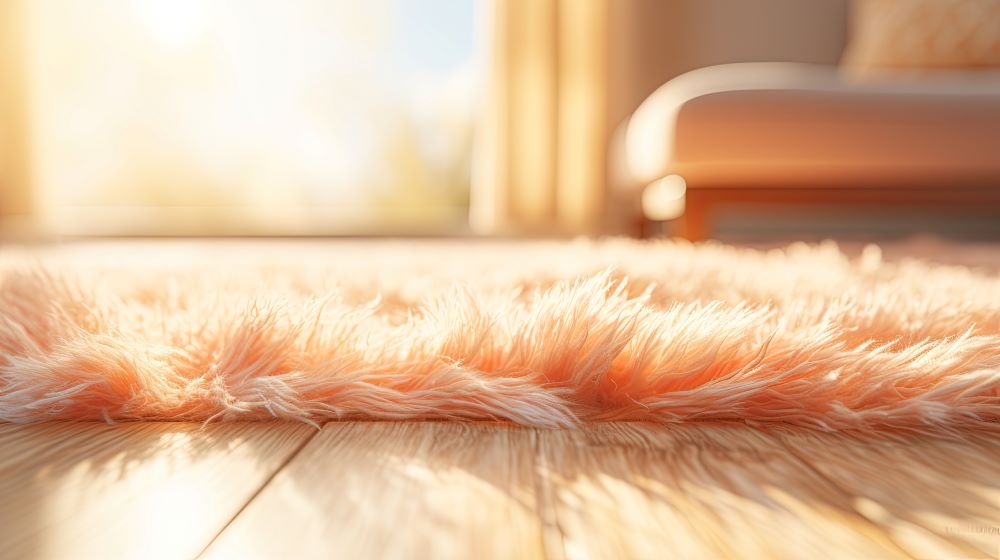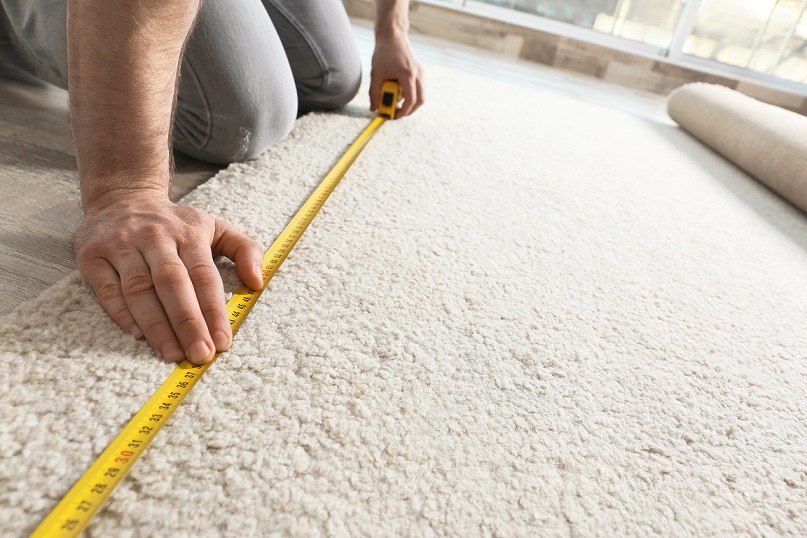A quick search on the internet reveals that vinyl, as a flooring product, has many different names and forms: you can buy it in sheets, rolls, tiles, or just under the name vinyl flooring. It’s often confused with linoleum.
If you’re considering buying vinyl flooring or having it installed, you’ll find everything you need to know in this guide.
Additionally, if you’re wondering how our expertise could help you, you should know that among the services we offer at Tapis André Viau, we specialize in vinyl floor installation throughout Greater Montreal. We also sell lots of vinyl flooring products.
What is vinyl flooring?
Vinyl is a flooring material made of PVC (polyvinyl chloride – this is where its name comes from). It’s a plastic material made from salt and petroleum derivatives. Vinyl flooring is obtained from the PVC coating process.
PVC is now very popular throughout the world, being one of the three most widely used plastics. In the home, it’s not only used for flooring; some doors, windows, and even pipes are made from it.
Origin and appearance of the first vinyl floors
The development of vinyl came about following the many post-war shortages. To overcome the lack of rubber, we started to focus on vinyl and its production.
The first vinyl floors started to appear in the 1930’s. That was over 90 years ago!
Since then, vinyl flooring has continued to grow rapidly in popularity, especially within businesses and public spaces.
What is the difference between linoleum and vinyl?
Linoleum is a floor covering typically made from burlap and linseed oil. It is therefore a natural material, as opposed to vinyl which is made from artificial plastic.
They are often confused because both types of flooring are sold in tile, sheet, and roll forms. Nevertheless, their strength, durability and appearance are essentially the same.
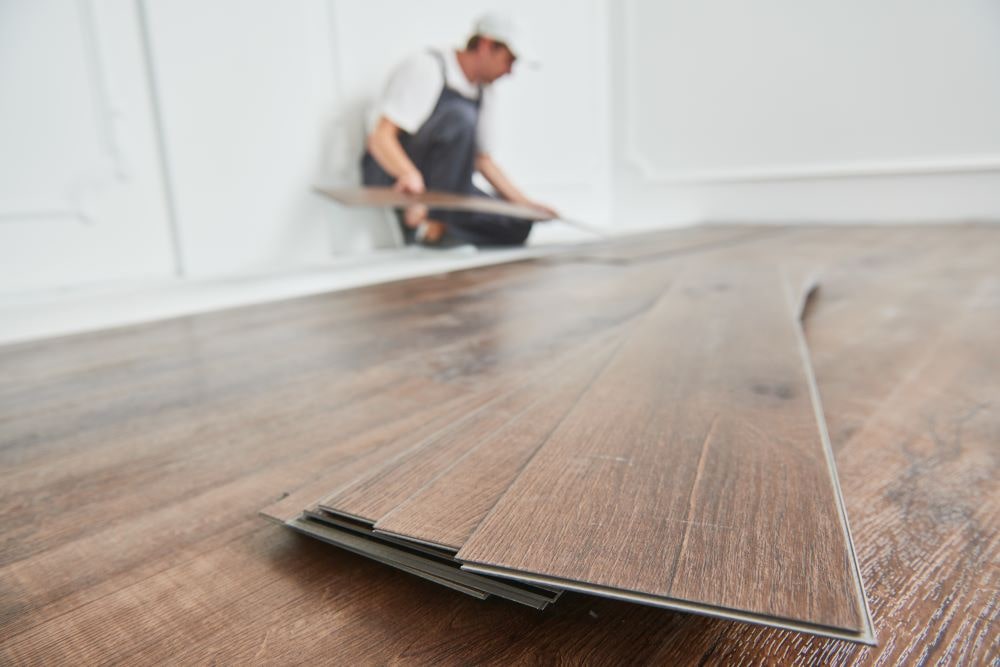
What are the benefits of vinyl flooring?
Vinyl has a wide range of benefits that make it a favoured material for use in both businesses and homes.
A variety of choice
Vinyl flooring perfectly imitates many types of more expensive materials, such as hardwood, tile, concrete, and marble. It’s a truly adaptable material, available in every colour and pattern imaginable.
Affordable cost
Not only is it indefinitely available (or almost), vinyl flooring is not that expensive. You can get a very professional, authentic look at a low cost.
A good sound and thermal insulator
A key advantage of vinyl is that at the right thickness, it acts as a good sound insulator, especially in apartments.
In addition, its flexibility makes it quieter than any other floorings. A solid hardwood floor compared to a vinyl floor would not make the same sound if someone were to walk on it in heels, for example. The same goes for tile or concrete.
Note also that a vinyl floor will always keep your feet warmer than cold tile! And if it’s not warm enough, you can always add a rug or carpet.
Waterproof and stain-resistant
Vinyl is perfectly water-resistant and very easy to clean.
That’s why vinyl looks great in kitchens, and why it’s perfect for a family with children, heavy duty areas or a home with pets.
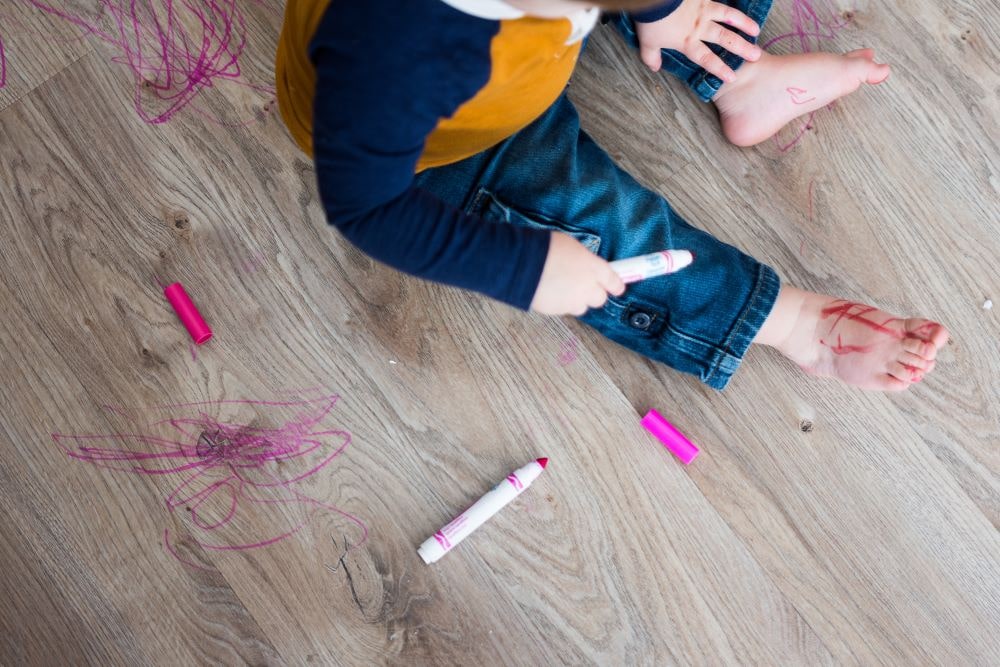
What are the disadvantages of vinyl flooring?
Given what it’s made from, vinyl should not be mixed with fire. A burn mark on vinyl cannot be masked, and smoking should be avoided indoors in fear of damaging the floor with ashes.
As already mentioned above, vinyl is not a natural material so we must also consider its polluting effects.
It has to be said however that, despite its polluting effects, this type of flooring is an excellent material for all interiors.
How to clean a vinyl floor
Very simply, you can clean a vinyl floor with soapy water. Nothing more extravagant than that is required. No need for a miracle product as a simple cloth soaked in soapy water will do the trick.
Vinyl is an extremely practical material in this respect: its minimal cleaning is well suited to a hectic lifestyle, where mopping every day isn’t possible.
How to install vinyl flooring
The installation of a vinyl floor depends on the size of the room, as well as how often it is occupied. It is possible to install this type of flooring in many ways, either without glue, or with double-sided adhesive, or with a special glue that ensures a perfect hold.
Adhesive or glue should be used in high traffic areas such as hallways or large rooms, where people continually move around. These application methods guarantee a long life for a vinyl floor and a beautiful finish, preventing the floor from warping over time. It is even possible to install vinyl in roll form without any adhering material on the original floor, but time may take a toll on its finish.
The real difficulty in installing vinyl flooring is trimming down the corners and ends. You must be very precise and careful: everything is calibrated and a bad cut with a retractable knife can damage the end result.
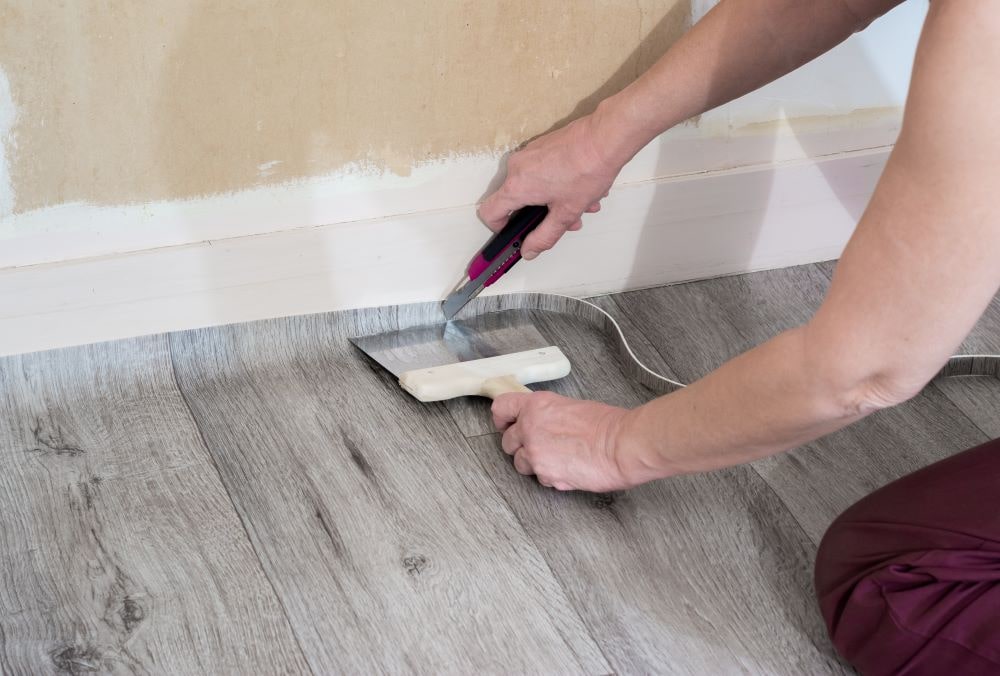
Hire our skilled professionals at Tapis André Viau
Choosing and installing vinyl flooring can be tough. If you are a do-it-yourselfer and have the time and tools to complete this project on your own, it is possible with a bit of effort. However, make sure you know what you’re doing.
With over 60 years of experience, we have mastered the art of installing linoleum, vinyl, floating and laminate flooring at Tapis André Viau.
If you are a business owner or are looking for a high-quality installation, let our vinyl floor installation experts take the pressure of your hands.
At Tapis André Viau, we have a variety of vinyl tiles and sheets, in all sorts of different colours and patterns. You’re bound to find what you’re looking for when you visit our store.


